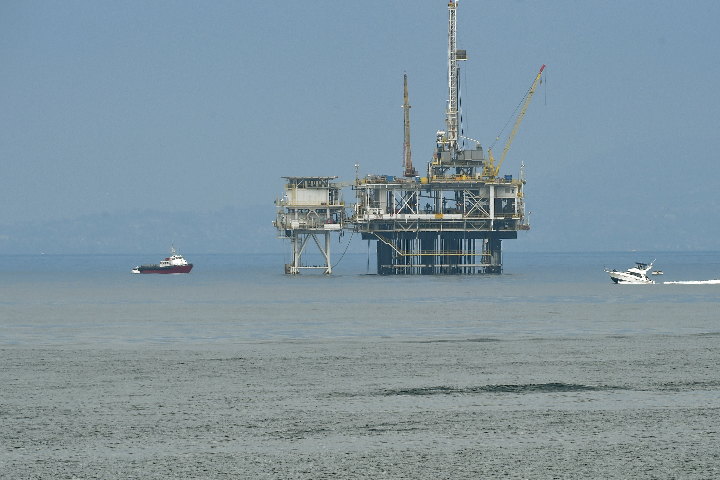
After a year suffering the economic consequences of the oil price slump, Opec is finally on the cusp of choking off growth in US crude output. The nation’s production is almost back down to the level pumped in November, when the Organisation of Petroleum Exporting Countries switched its strategy to focus on battering competitors and reclaiming market share. As the US wilts, demand for Opec’s crude will grow in 2015, ending two years of retreat, the International Energy Agency estimates. While cratering prices and historic cutbacks in drilling have taken their toll on the US, Opec members have also paid a heavy price. A year of plunging government revenues, growing budget deficits and slumping currencies has left several members grappling with severe economic problems. The fact that the US oil boom kept going for about six months after the group’s November decision also means Opec has so far succeeded only in bringing the market back to where it started. “It’s taken a hell of a long time and it will continue to take a long time - US oil production has been more resilient than people thought,” said Mike Wittner, head of oil markets research at Societe Generale SA in London. “The bottom line is the re-balancing has begun.” Opec abandoned its traditional role of paring production to prevent oversupply last November as a tide of new oil from the US eroded its share of world markets. The group chose instead to keep pumping, allowing the subsequent price slump to squeeze competitors with higher costs. Its representatives will meet in Vienna Wednesday with non-member countries including Russia for technical talks. Shrinking Shale The plan appears to be working. Oil remains 33% lower than when Opec revealed its strategy on Nov. 27, trading for $48.46 (AED178) a barrel in London at 5:28 pm Tuesday (8:38 pm UAE time). US crude production has retreated about 500,000 barrels a day from the three-decade peak reached in June to 9.1 million a day in the week to Oct. 9, according to data from the Energy Information Administration. The losses will accelerate next year with a drop of 390,000 barrels a day in annual average production to 8.86 million barrels a day, according to the EIA. Opec’s fortunes will improve as the US declines, with the IEA predicting demand for the group’s crude climbing to 31.1 million barrels a day next year from 29.3 million in 2014. “Their strategy is still working for them,” said Miswin Mahesh, an analyst at Barclays Plc in London. “It means pain now, but in the medium-to-long term they will reap the fruits of a more balanced market, moderated shale supplies, growing demand for oil and ultimately a higher price.” Fragile Economies The pain has been considerable. The average price of a selection of Opec’s crudes has been about 46% lower this year than in 2014, equivalent to a loss of export earnings of roughly $370 billion. Saudi Arabia, the main architect of Opec’s new strategy, will have a budget deficit of 20% of gross domestic product this year, the IMF estimates. While the kingdom has been able to tap foreign currency reserves and curb spending to cope with the slump, less wealthy Opec members have fewer options. The threat of political unrest is mounting in the “Fragile Five” of Algeria, Iraq, Libya, Nigeria and Venezuela, according to RBC Capital Markets LLC. Game Plan Venezuela, whose currency has lost 87% of its value on the black market in the past year, is urging fellow Opec members to reverse course and curb production to support prices. Eulogio Del Pino, the nation’s oil minister, will propose the reintroduction of a targeted price range - a policy the group abandoned in 2005 - at the meeting in Vienna Wednesday. Iran agrees that Opec ought to reduce output to engineer a price recovery to $70, but it’s doubtful the group will enact any measures to do this, the nation’s Oil Minister Bijan Namdar Zanganeh said Oct. 19. The Arabian Gulf nation is planning to boost its own output by 1 million barrels a day next year if international sanctions are lifted. Faltering US supplies show the Saudi-led strategy is paying off, said Societe Generale’s Wittner. “If there are folks in the oil market who expect this is going to end with a new game plan, they’re going to be very disappointed,” he said. (By Grant Smith/Bloomberg)

 UK's Jaguar Land Rover to halt US shipments over tariffs
UK's Jaguar Land Rover to halt US shipments over tariffs
 US starts collecting Trump's new 10% tariff
US starts collecting Trump's new 10% tariff
 Nasdaq set to confirm bear market as Trump tariffs trigger recession fears
Nasdaq set to confirm bear market as Trump tariffs trigger recession fears
 Dana Gas and Crescent Petroleum exceed 500M boe in Khor Mor field
Dana Gas and Crescent Petroleum exceed 500M boe in Khor Mor field
 China to impose tariffs of 34% on all US goods
China to impose tariffs of 34% on all US goods




